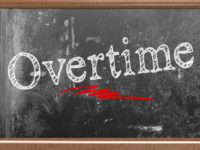Sometimes the fit for a new employee is “off” and the employee and the employer find themselves in the midst of a dilemma.
It is typical for employment contracts to contain a clause regarding the probationary period of the new employee. These probationary periods can range from three to six months in some cases. These clauses are put into place should either the employer or employee wish to terminate employment with the expectation of no legal ramifications.
Currently an employer can terminate a new employee within the probationary period without concern for liability generated from an unfair dismissal claim. This is due to the Fair Work Act 2009 prohibiting anyone employed with a company of less than 15 employees from filing a claim for unfair dismissal within the first 12 months of employment. For employers with greater than 15 employees, the time frame prohibiting a claim of unfair dismissal is six months.
The length of the probationary period is always within the discretion of the employer. Most employers use a three-to-six month period of probation to see if the employee works well within the company’s structure and with the other employees. This is perfectly acceptable and still allows the employer the right to terminate an employee without concern for an unfair dismissal claim. During this time period the employee is still entitled to basic benefits and has certain protections.
For example, an employee is entitled to the following during their probationary period:
- payment of wages during the probationary period
- one weeks’ notice prior to termination
- to accrue and access their sick leave and vacation time
- any unused accrued annual leave must be paid out upon termination.
To ensure the fairest opportunity for both the employer and employee to assess the new employment situation, it is best for the employer to take some very simple precautionary steps to document the employees’ success or failure during the early phase of employment. It is important that expectations for the position are clearly defined and communicated by the employer.
The probationary period gives employers time to make a decision to permanently hire or fire the probationary employee. During this time it is important to assess carefully and keep the new employee informed of the direction with regard to offering permanent employment. However, prior to confirming full time employment it is important to remain non-committal in statements regarding ongoing employment. Do not make promises of continued employment unless you are certain of following through. Do not take any action that could be construed as discriminatory in your consideration of letting a probationary employee go. Any hint of a promise made, or a breach of contract, or a discriminatory action, could give rise to a legal claim.
Finally, if an employer is unsure about permanently hiring a probationary employee, keep in mind that you can extend a probationary period. However, if you do, and the time runs beyond the 12-month or six-month statutory Fair Work Act period, the employee then will have the right to file an unfair dismissal claim. In the event that you do decide to let a probationary employee go, rather than hire them permanently, it is always in your best interests to craft a letter to the employee informing them of your decision. This letter is required as written notice of termination.
Rolf Howard, Managing Partner, Owen Hodge Lawyers
















